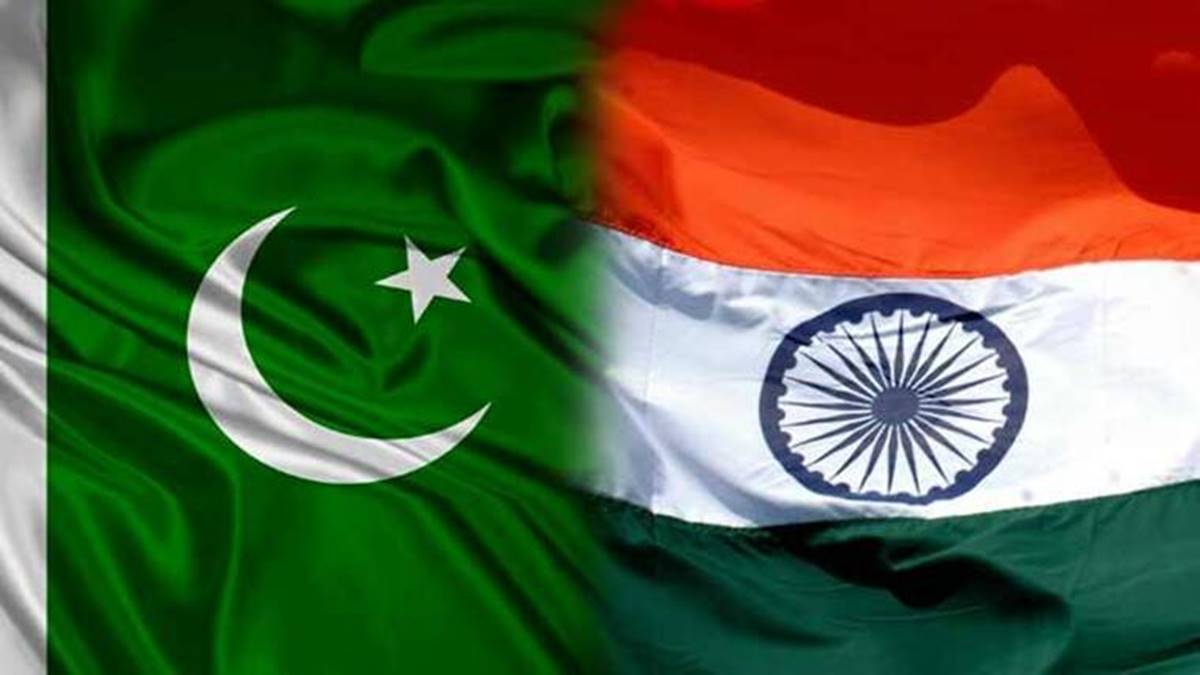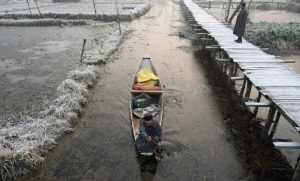
Want constructive dialogue between India and Pakistan: Top US official
‘Wanted to improve relations with India during my tenure but…’: Pak’s Imran Khan
America shares multifaceted relationships with India and Pakistan and does not want to see a “war of words” but a constructive dialogue between the two nations for the betterment of their people, a top US official has said.
Relations between India and Pakistan have often been strained over the Kashmir issue and cross-border terrorism emanating from Pakistan. “We have a global strategic partnership with India. I have also spoken about the deep partnership we have with Pakistan. These relationships in our mind are not zero-sum. We do not view them in relation to one another,” US State Department spokesperson Ned Price told reporters at his daily news conference on Monday when asked about the recent outburst against Prime Minister Narendra Modi by Pakistani Foreign Minister Bilawal Bhutto-Zardari in New York.
Price said each of these relationships is indispensable to the US and to the promotion and pursuit of the shared goals that the US has with India and Pakistan. “The fact that we have partnerships with both countries leaves us not wanting to see a war of words between India and Pakistan. We would like to see a constructive dialogue between India and Pakistan. We think that is for the betterment of the Pakistani and Indian people. There is much work that we can do together bilaterally,” Price said in response to the question. “There are differences that, of course, need to be addressed between India and Pakistan. The United States stands ready to assist as a partner to both,” he asserted.
The ties between India and Pakistan nosedived after India abrogated Article 370 of the Constitution, revoking the special status of Jammu and Kashmir and bifurcating the State into two Union Territories on August 5, 2019. Pakistan foreign minister Bhutto-Zardari last week resorted to a personal attack on Prime Minister Modi and slammed the RSS after External Affairs Minister S Jaishankar told the UN Security Council that the “contemporary epicentre of terrorism” remains very much active and called for collective action to tackle them.
Though Jaishankar did not name any countries, it was apparent that he was making a veiled reference to Pakistan. Later, he told reporters in New York that the world sees Pakistan as the epicentre of terrorism and recalled US leader Hillary Clinton’s blunt message to Islamabad in 2011 that snakes in one’s backyard will eventually bite those who keep them. “The US has a global strategic partnership with India. These relationships stand on their own; it is not zero-sum. “We see the importance – the indispensability really – of maintaining valuable partnerships with both our Indian and Pakistani friends. Each of these relationships also happens to be multifaceted,” Price said. “So even as we deepen our global strategic partnership with India, we also have a relationship in which we can be candid and frank with one another. Where we have disagreements or concerns, we voice those just as we would with our Pakistani friends as well,” he said.
Responding to another question, Price said countries the world over welcomed when Prime Minister Modi told Russian President Vladimir Putin this summer that this is not the era of war. “I think it is notable that the communique emanating from the G20 also had very similar language – I think a testament to the fact that this was language and this was a call that resonated in this country, in South Asia, in Europe, and around the world. The United States certainly welcomes it,” he said. The top US official said it was also important because India has a relationship with Russia that the US does not have.
For decades, Russia was prepared to be a partner to India in a way that the US at the time was not. Of course, that has changed in recent decades, Price said. It is a bipartisan legacy of the last several administrations, perhaps starting most notably with the administration of former US President George W Bush that the US is now a partner of “first resort” for India, he said. “There is a lot of good that we can do together, not only for our two countries, but around the world, and I think we will see a good example of that in the coming year when India hosts the G20,” he said. “I know we will have an opportunity to travel to India, to be in close touch with India in the context of the G20, and we will be able to see what cooperation between our two countries and a broader set of countries can provide,” Price added.
Meanwhile, Pakistan’s ousted prime minister Imran Khan on Monday said he wanted to improve strained relations with India during his tenure but the revocation of Kashmir’s special status became a “hurdle.” Khan, the 70-year-old former cricketer-turned-politician, also said that then Army chief General Qamar Javed Bajwa was even more inclined to have better ties with India. “I wanted to improve relations with India during my three-and-a-half year tenure but the RSS ideology and revocation of (Jammu and Kashmir) special status became a hurdle,” the Pakistan Tehreek-e-Insaf (PTI) party chairman said during his interaction with a group of foreign journalists at his Zaman Park residence here.
Khan said after India revoked Kashmir’s status in 2019 his government did not push for talks. “We wanted India to reverse its decision first and hold peace talks,” he said. Responding to a question from the Press Trust of India (PTI) about who was running foreign policy towards India during his tenure, he or then Gen Bajwa, Khan replied: “I was the boss…I was running the foreign policy. However, let me tell you that Gen Bajwa was even more inclined to have better ties with India.”
Khan recently said he did not have the power during his tenure as Gen Bajwa was the man who was calling the shots. When reminded that he had expressed his wish ahead of elections in India that Narendra Modi should win and as he would resolve the Kashmir issue, Khan said: “I still believe that a leader from the right-wing party can resolve a conflict. Modi was from the right-wing party which was why I wanted him to return to power and resolve the Kashmir issue. The right-wing party in a country opposes resolution of any such issue.”
Relations between India and Pakistan have often been strained over the Kashmir issue and cross-border terrorism emanating from Pakistan. However, the ties between the two countries nosedived after India abrogated Article 370 of the Constitution, revoking the special status of Jammu and Kashmir and bifurcating the State into two Union Territories on August 5, 2019.
Khan also launched a scathing criticism of Gen Bajwa who retired late last month. “Gen Bajwa unleashed a reign of terror on us during the last seven months as our leaders were brutally tortured (at his behest). Gen Bajwa is also responsible for economic disaster in the country,” he alleged.
When asked who was responsible for ousting him from power – the US or Gen Bajwa – Khan said: “Gen Bajwa was mainly responsible for sending my government home despite we were performing well on the economic front. He wanted to give NRO (favour) to the thieves — Sharifs and Zardaris — that was why he conspired against my government. The role of the US should be determined through investigation of a cypher in this respect by a judicial commission.” Earlier, Khan had blamed the US for conspiring to oust him from power, a charge denied by Washington.
Khan also raised an alarm about the Afghan conflict. “Currently, no one at the helm knows how to handle the Afghan situation. Pakistan cannot afford conflict with Afghanistan. Our foreign minister Bilawal Bhutto Zardari must go to Afghanistan instead of roaming around in the world as it is a very serious matter,” he added.
The attacks at the border have strained relations between Pakistan and Afghanistan’s Taliban rulers in recent months. Pakistan and Afghanistan share a 2,600-km volatile border. Earlier this month, Pakistan’s Embassy in Kabul came under gunfire in an attack that was later claimed by the Islamic State group. Pakistani officials at the time had called the incident an attack on its envoy there. Islamabad also has said Afghanistan’s rulers are sheltering militants who carry out deadly attacks on its soil.

